So i have something that looks like this
db.usuarios.insert
(
[
{
"nome" : "neymala",
"idade" : 40,
"status" : "solteira"
},
{
"nome" : "gabriel",
"idade" : 31,
"status" : "casado"
},
{
"nome" : "jose",
"idade" : 25,
"status" : "solteiro"
},
{
"nome" : "manoel",
"idade" : 25,
"status" : "solteiro",
"interesses" : [
"esporte",
"musica"
]
}
]
)
I would like to find names that starts with ma and ends with l, for example "manoel" or "manuel"
I have figured out how to do one or the other with the fallowing querys:
db.usuarios.find({nome:{$regex: /^ma/ }})
db.usuarios.find({nome:{$regex: /l$/ }})
Now i would like to combine them into a single query.
